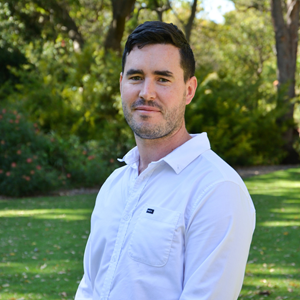Dr Samuel Mc Cormack is a Benthic Ecologist with the Australian Institute of Marine Science (AIMS) based in Perth. His work focuses on the intersection of technology, ecology, and Indigenous Sea Country stewardship, using advanced imaging and AI methods to monitor benthic communities across northern Australia.
-
Bardi Jawi Rangers (Kimberley Land Council) — Co-developing Indigenous-led reef monitoring frameworks.
-
DBCA (Department of Biodiversity, Conservation and Attractions) — Advancing technology integration in marine monitoring.
- International collaborations with National Sun Yat-sen University (Taiwan) on sponge taxonomy and digital microscopy workflows.
Provides mentorship for AIMS early career staff and Indigenous Ranger trainees in benthic image analysis, ReefCloud annotation, and autonomous system operations.
- Mc Cormack, S.P.M., Kelly, M., & Battershill, C.N. (2020). Description of two new species of Dysidea (Porifera: Demospongiae: Dictyoceratida: Dysideidae) from Tauranga Harbour, Bay of Plenty, New Zealand. Zootaxa, 4780(3). https://doi.org/10.11646/zootaxa.4780.3.5
- Pratchett, M.S., Caballes, C.F., Hobbs, J.P.A., DiBattista, J.D., Bergseth, B., Mc Cormack, S.P.M., et al. (2023). Variation in the physiological condition of Common Coral Trout (Plectropomus leopardus) unrelated to coral cover on the Great Barrier Reef, Australia. Fishes, 8(10), 497. https://doi.org/10.3390/fishes8100497
- Klautau, M., Lopes, M.V., Tavares, G., Rizzieri, R., Sorokin, S., Fromont, J., Mc Cormack, S.P.M., et al. (2025). Calcinean sponges (Porifera: Calcarea) from the shelf edge of the Great Australian Bight. Zoological Journal of the Linnean Society, 203(3), zlae041. https://doi.org/10.1093/zoolinnean/zlae041

